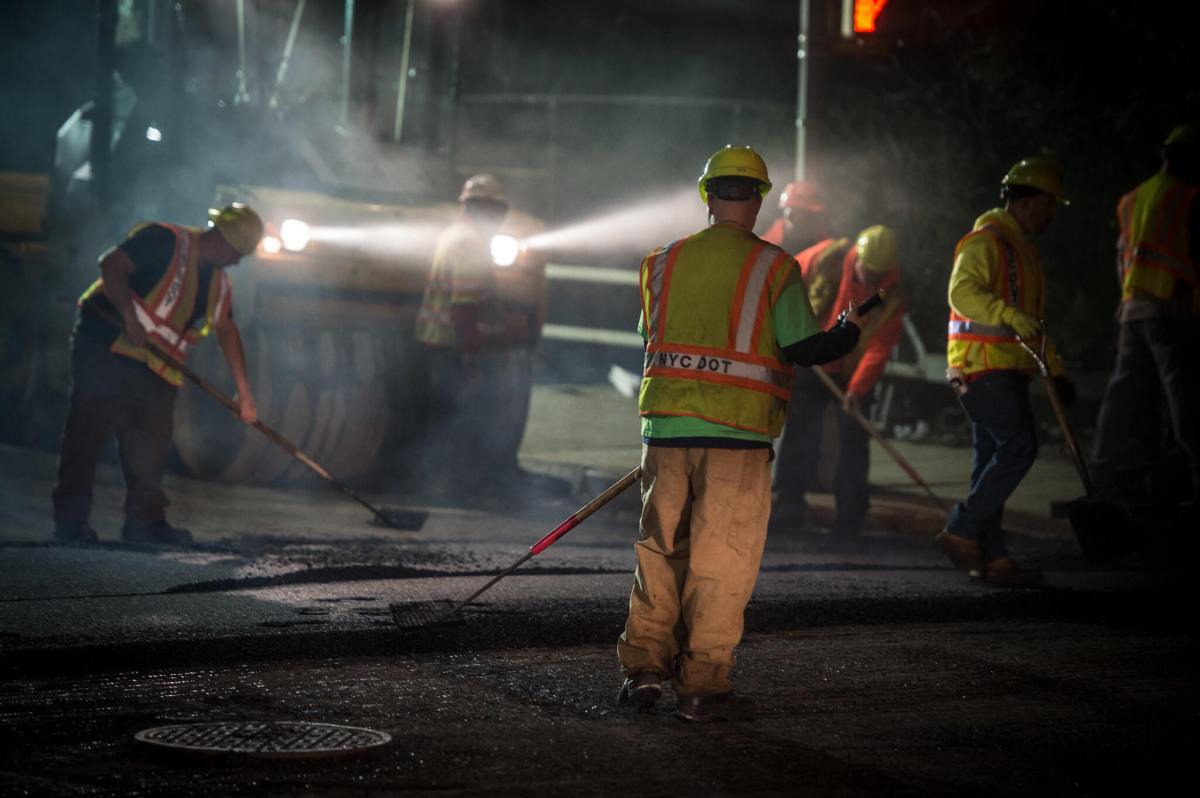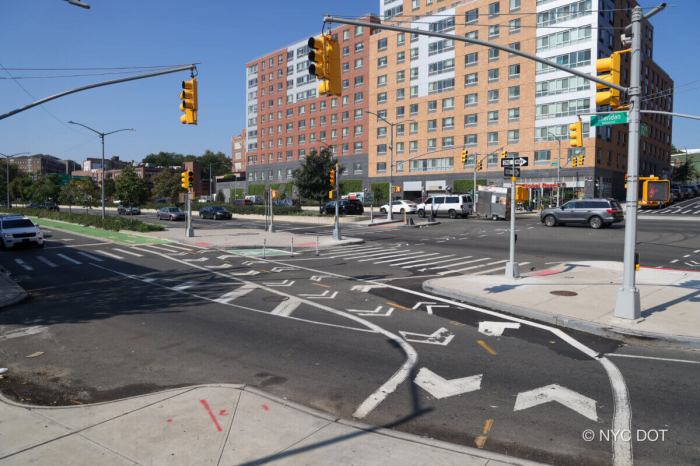The City Council wants to set deadlines for the Department of Transportation to repave city streets to two weeks, despite the objections of City Hall officials who say the bill would lead to unreliable, flimflam roadwork.
A majority of the Council’s 51 members have added their names to Intro. 905, sponsored by Brooklyn Councilmember Justin Brannan, which would compel the DOT to finish all street resurfacing projects within two weeks of initiation. For projects that take longer, as many do, the DOT would have to notify the surrounding community of the expected project timeline and the reasons for the delay.
“It’s in no way requiring the agency to actually do the work,” said Staten Island Councilmember David Carr at a transportation oversight hearing on Tuesday. “We require you to do the work or inform the community stakeholders that there’s going to be a delay.”
But the DOT is less than enthused with the bill, with reps arguing it doesn’t account for the fact that the projects often don’t solely include repaving a street.
Margaret Forgione, DOT’s first deputy commissioner, told lawmakers on Tuesday that if projects solely included milling — or removing the surface layer of asphalt from a street — and repaving with a fresh coat of blacktop, the projects likely could be done in two weeks.
But when the DOT resurfaces roads, it must closely coordinate with the utilities running the complex jumble of transmission lines underneath a given street, to avoid costly and dangerous errors. Oftentimes, utilities will discover issues underground that require a longer-term road closure period, said Forgione.
“Sometimes…we find a water leak, sometimes there is a minor gas leak, which is actually an excellent time to find that,” said Forgione. “Because that work can be done before the road is quickly repaired and that problem potentially grows worse and could present a safety issue down the line.”
Addressing those issues while roadwork is ongoing anyway forestalls the need to dig up the road again later once a problem arises, she said.
“I’d much rather they take a few extra days and really repair the street right for safety reasons, and also…not come back in six months, a year, two years, and dig up that fresh road again,” said Forgione. “I would much rather ask the public for patience on the milled roadway than have them, in a few years, get back a lousier street.”
Regular repaving of roadways is a necessary government function to keep them from falling into disrepair. Only 76.9% of city roads have pavement rated “good,” according to the most recent Mayor’s Management Report, a compendium of citywide agency performance. The city repaved 1,200 miles of roadway in the last fiscal year, according to the report.
The city filled 8,000 fewer potholes in 2023 than in 2022, and nearly 25% fewer than in 2019, the final year before the pandemic, according to the report. The Adams administration has attributed this decline to there being a smaller number of potholes to fix.
But like other agencies, DOT is grappling with hundreds of vacancies in key positions, slowing progress on street improvements. Many of the vacancies are hard to fill: those pursuing an apprenticeship as a roadway inspector at DOT, for instance, must undergo six months of training and will only make $33,000 per year, according to Deputy Commissioner for Sidewalks and Inspection Management Leon Heyward.
The positions see high turnover, with apprentices often taking civil service exams for other jobs when available. Heyward said the agency would like to increase the pay and qualifications (right now, the only prerequisite is a driver’s license) as a means of attracting more talent.
Correction: this story was updated with the correct spelling of Deputy Commissioner Leon Heyward’s name.



































